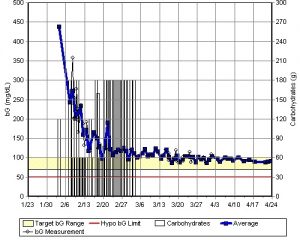Type II diabetes medication

The main type II diabetes medication is that of insulin which more than likely when you know a type II diabetic you will hear them say that the only way that they can get a grasp on their diabetes and maintain them is by using insulin in compliance with diabetes and exercise so that their health and diet can be maintained and their diabetes can be manageable.
Type II diabetes medication comes in many different types and forms such as insulin being the most popular, Glucotrol XL and Glucophage are two other popular forms, both being oral medications which generally come in pill form. Glucotrol XL and Glucophage are both highly known diabetes medications and widely as treating and helping maintain type II diabetes medication.
These type II diabetes medications contain metaformin which allows your body to be able to balance the insulin that it takes in and is able to produce so that you can have it all balanced in no time. Metaformin medications are more likely to be used with diabetics and people who have kidney problems because the Metaformin is easier on your system versus the other diabetic medications.
A lot of times when someone is starting to have diabetic symptoms or showing signs of diabetes the doctor may put you on some type of Metaformin such as Glucotrol XL, Glucophage or insulin as a precautionary measure so that possibly you can control your diabetes with medication without having to go to insulin as a last resort.
Type II diabetes medication can come in liquid forms, pill forms, forms in which you have to inject just to name a few. Type II diabetes doesn’t mean the end of the world nor does it automatically mean that you have to rely on insulin for the rest of your life there are other types of medications that can be tried first.


